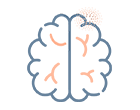Skogseid I. M. (2014). Dystonia–new advances in classification, genetics, pathophysiology and treatment. Acta neurologica Scandinavica. Supplementum, (198), 13–19. https://doi.org/10.1111/ane.12231
Lohmann, K., & Klein, C. (2017). Update on the Genetics of Dystonia. Current neurology and neuroscience reports, 17(3), 26. https://doi.org/10.1007/s11910-017-0735-0
Steeves, T., Day, L., Dykeman, J., Jette, N., & Pringsheim, T. (2021). The prevalence of primary dystonia: A systematic review and meta-analysis. Retrieved 31 March 2021
Vidailhet, M., Méneret, A., & Roze, E. (2020). Dystonia: genetics, phenomenology, and pathophysiology. The Lancet. Neurology, 19(11), 881–882. https://doi.org/10.1016/S1474-4422(20)30366-5
Balint, B., Mencacci, N. E., Valente, E. M., Pisani, A., Rothwell, J., Jankovic, J., Vidailhet, M., & Bhatia, K. P. (2018). Dystonia. Nature reviews. Disease primers, 4(1), 25. https://doi.org/10.1038/s41572-018-0023-6
Albanese, A., Barnes, M., Bhatia, K., Fernandez-Alvarez, E., Filippini, G., & Gasser, T. et al. (2006). A systematic review on the diagnosis and treatment of primary (idiopathic) dystonia and dystonia plus syndromes: report of an EFNS/MDS-ES Task Force. European Journal Of Neurology, 13(5), 433-444. doi: 10.1111/j.1468-1331.2006.01537.x
Schwarz, C. S., & Bressman, S. B. (2009). Genetics and treatment of dystonia. Neurologic clinics, 27(3), 697–vi. https://doi.org/10.1016/j.ncl.2009.04.010






